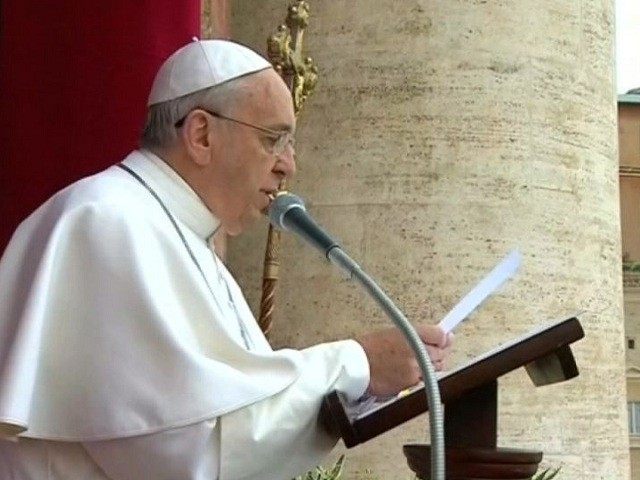Nothing ever happens in a vacuum. Pope Francis’ ongoing concern for environmental issues, which will attain its fullest expression with the release of his encyclical on human ecology Thursday, has deep roots in his own personal experience, especially as archbishop of Buenos Aires, home to one of the most polluted places on the planet.
In a leaked draft of the encyclical, Francis expresses his deep worry over the widespread pollution whose symptoms can be “recognized in the soil, in the water, in the air and in living beings.” Among the most abandoned and mistreated poor, he says, “we find our oppressed and devastated earth, which groans and suffers the pains of childbirth.”
The Pope also pushes particularly hard on the theme of clean drinking water for all, devoting an entire section of the book-length letter to the topic.
“A particularly serious problem is that of the quality of available water for the poor, which provokes many deaths each day. Among the poor, sicknesses linked to water are common, including those caused by microorganisms and chemical substances,” the draft says.
“In many places, aquifers are threatened by the pollution caused by certain extractive, agricultural and industrial activities, especially in countries lacking regulation and sufficient controls,” it reads.
It turns out that Pope Francis has firsthand, personal experience of the devastating effects of pollution on the lives of citizens, presiding over an archdiocese severely affected by a major environmental blight for more than a decade.
In wishing to apply pressure on the worst environmental offenders, Francis cannot help but think of the leaders of his own native land of Argentina, home to one of the most severely polluted spots on the entire planet: the infamous Riachuelo Basin.
The river is included in the list of the top ten worst polluted sites on earth by the environmental organization the Blacksmith Institute, as well as the Cruz Verde Suiza.
The banks of the Riachuelo Basin in Argentina are lined by nearly 4,000 factories, 42 garbage dumps, and 13 slums, with an average of 82,000 cubic meters of industrial waste dumped into the river daily. This has resulted in an unsavory ecological cocktail of unchecked pollution with its related illnesses and curtailed life expectancy.
“The Riachuelo can be seen as a microcosm of the environmental problems in the cities of Argentina,” says Leandro García Silva, an ombudsman specializing in environmental human rights. “The Riachuelo as a river is absolutely overloaded with contamination as compared with its size—it’s a small river with a big city around it.”
More than 40 miles long, the river winds through Buenos Aires, and exceeds by more than 50% the permitted levels of mercury, arsenic, zinc, and lead, creating critical levels of pollution at the Matanza-Riachulo. The area affects about 5 million people, 35% of whom are without safe drinking water and a further 55% without appropriate sewerage systems.
The situation reached a crisis in 2008, during Cardinal Jorge Bergoglio’s term as archbishop of Buenos Aires. In that year, Argentina’s Supreme Court ruled that the basin needed urgent attention and decreed that many of the most at-risk families—those living in makeshift slums right on the shores of the river, in places such as Inflamable and Villa 21-24—would need to be relocated.
Though progress has been slow, Argentina is implementing “the most ambitious basin recovery project in its environmental history”: the Integrated Plan for Environmental Sanitation for the cleanup and sustainable development of the Matanza-Riachuelo River basin.
The large-scale engineering works being undertaken are critical for the health of the seven million people living in the area, of whom at least ten percent live below the national poverty line.
Many of these families live in floodplains and near garbage dumps, which can threaten their health and in some cases their lives. “Today the river is a potential source of problems for the population who live nearby,” says Daniel Mira-Salama, World Bank environmental expert and project co-director.
Many of the people the Pope ministered to during his 16-year term at the helm of the Catholic Church in Buenos Aires were directly affected by an environmental disaster of epic proportions.
When in his new encyclical the Pope says that “exposure to atmospheric pollution produces a broad spectrum of effects on health, particularly on the poorest and provokes millions of premature deaths,” he knows exactly what he is saying.
Follow Thomas D. Williams on Twitter @tdwilliamsrome.

COMMENTS
Please let us know if you're having issues with commenting.